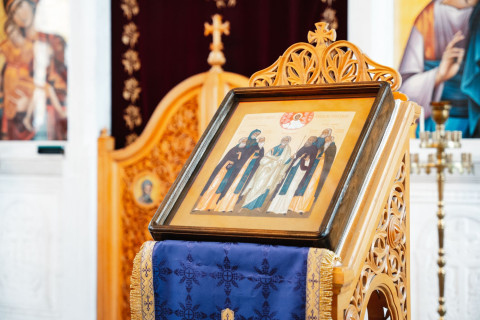The religious landscape of Europe is becoming increasingly diverse, resulting in a need to develop religious education. The School of Applied Educational Science and Teacher Education at the University of Eastern Finland took part in the European-wide Innovative Religious Education Network: Educating to the Religious Diversity, IRENE, project.
The objectives of the project included, e.g., facilitating the exchange of experiences and transfer of knowledge in religious education, as well as improving teaching methods related to diversity and multiculturalism between the participating countries. In addition, the IRENE project encouraged those involved in religious education to play an active role in society, and it has built strategic partnerships and collaboration between the project partners.
“The project resulted in, e.g., a roughly 200-page educational guide, the abstract of which concludes that religious education in the context of schools and religious communities is a major challenge in all countries participating in the project. This is especially true if teachers fail, in their delivery of religious education, to consider the pedagogical requirements set by today’s socio-cultural demands,” says Lecturer of Orthodox Religion Pedagogy Risto Aikonen, who led the project at the University of Eastern Finland.
He says that two main models of religious education were identified in the course of the project’s research.
“In the context of the church, the model is confessional and serves the educational mission of the church, making it uniform and mono-voiced. This type of religious education mainly serves the pastoral needs of the Christian faith and is not directly suitable for religious education in schools.”
In southern Europe where Catholicism is prevalent, the model is used in schools maintained by the Catholic Church.
“However, a non-confessional and multi-voiced model of religious education, which doesn’t place as much emphasis on traditions and identity, is better suited for schools. This model provides support for an ecumenical view in religious education and fosters pluralism.”
This is a challenge faced especially by Orthodox countries of southern Europe, where religious traditions and national identity largely coincide.
In the countries participating in the project, there were also views representing an in-between space between the two main models. In these cases, there is a balance and understanding between Christian traditions and religious education, and neither aspect of those two is emphasised in religious education delivered by schools.
In addition to Finland, the countries involved in the project included Estonia, Italy, Romania, Bulgaria, and Greece.

Common courses and tools to improve religious education
The project carried out a comparative study seeking to enhance knowledge and compare methods of religious education with a particular aim to improve teaching addressing religious diversity and intercultural communication in the project partners’ learning environments. The project also contributed to the partners’ key skills, content knowledge, terminology, and language skills on ecumenical and interfaith issues. Published in the languages of the partner countries, the study was conducted by the University of Eastern Finland in collaboration with the Institute of Theology of the Estonian Evangelical Lutheran Church.
“Another outcome of the project is an educational guide consisting of an extensive collection of articles. The guide is published in the languages spoken in the participating countries as well as in English,” Aikonen says.
The objective of the guide is, e.g., to help teachers and educators to respond to today’s societal questions. At the same time, the aim was to provide educational paths for those who deal with multiculturalism in their daily work.
“The objective was also to promote professional development among teachers and educators in order to facilitate better dialogue with people representing different ethnicities, cultures and religions.”
Another key outcome of the project is an online platform available in English and Italian, which offers joint courses for the participants. The platform also aims to build collaboration between the countries involved in the project.
The IRENE project was coordinated by Asociatia Vasiliada, a civic organisation based in Romania. In addition to the University of Eastern Finland, other partners included San Bernardino’ Institute for Ecumenical Studies in Venice, the Aristotle University in Thessaloniki, the Regional Development Foundation in Bulgaria, and the Institute of Theology of the Estonian Evangelical Lutheran Church in Tallinn. The IRENE project was aimed at teachers of religion, theologians and priests, and the development of religious education wasn’t its only focus. Due to the countries participating in the project, the examination of Orthodox religious education in the context of schools and churches was emphasised to some extent, but the theme was also examined from the viewpoint of churches of the other project countries. The project started in late 2020 and ended in spring 2023.





